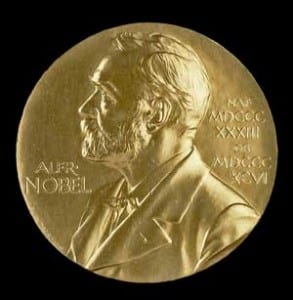Ramsay and the Nobel Discovery
By Nick J Booth, on 25 October 2013
Sir William Ramsay was arguably one of the most famous scientists of his day. Between 1894 and 1898 he discovered five new elements – helium, neon, argon, krypton, and xenon; commonly known today as the noble gases. Not only was this impressive in itself, but these new elements did not fit onto the periodic table as it existed at that time. This led to Ramsay adding a whole new group to the periodic table. In 1904 the Royal Swedish Academy of Sciences chose to award Ramsay the Nobel Prize for Chemistry, for his discovery of the noble gases. He was the first British person to win this prize.
2013 marks 100 years since the retirement of Sir William Ramsay from his post as Head of Chemistry at UCL. To mark this UCL Chemistry Collection will be taking part in a very special pop-up exhibition in the Rock Room, UCL’s Geology Museum.
Between 12.30 – 3pm on November 1st a range of objects relating to Ramsay and his work will be on display. I have picked out a few of my personal favourites…
 Close
Close



